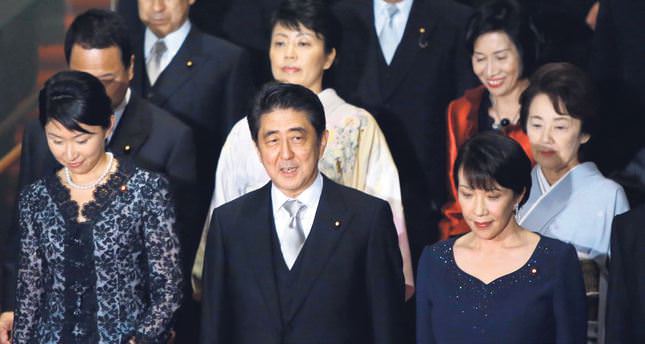Japan's bid for economy driven by women faces big hurdles

Japanese Prime Minister Shinzo Abe's appointment of a record number of women to his cabinet highlights efforts to power the economy by boosting the female workforce - but he faces myriad challenges turning that vision into reality. On Wednesday, Abe gave key jobs - including the justice ministry and oversight of the embattled nuclear power sector - to women, who now make up more than a quarter of the 18-strong cabinet. "Creating a society where women can shine is a big challenge that the Abe cabinet is taking on," said the conservative premier, who swept to power in late 2012 on a ticket to kickstart the lumbering economy.The move followed growing calls for Japan to make better use of its highly-educated but underemployed women as a rapidly ageing population strains the public purse. Tokyo wants to boost the ratio of women in senior positions to 30 percent by 2020, up from 11 percent now, one of the lowest rates in the world. Dozens of Japan's biggest firms - including Toyota, Panasonic and All Nippon Airways - recently announced targets for boosting the number of executive women. But the task is a daunting one in a country where sexist attitudes are still prevalent and men dominate politics and business. Long working hours, boozy afterwork sessions with the boss, and not enough childcare facilities are also among the reasons why many working Japanese women opt to stay at home or give up hopes of promotion after having children. "The corporate gender gap in Japan is thought to be a result of indirect discrimination against women," said Kazuo Yamaguchi, a sociology professor at the University of Chicago. "For example, willingness to work long hours seems to be a condition for promotion for women, but not for men. "Another example is a corporate practice of placing women in positions that have fewer opportunities for promotion despite high job-performance evaluations." Meaningful change in company demographics will only come if more Japanese women want to work and the environment welcomes them, added French sociologist Muriel Jolivet, who has been living and teaching in Japan for years and has written several books on Japanese society. "These kind of (numerical) goals don't mean anything," she said. Old attitudes can be another barrier, an issue highlighted this summer when a member of Abe's ruling Liberal Democratic Party (LDP) admitted he hurled sexist taunts at a Tokyo assembly woman during a council debate on motherhood. The embarrassing episode did little to burnish the feminist credentials of Abe's government, which is set to host a female leadership meeting in Tokyo this week, with International Monetary Fund chief Christine Lagarde delivering a keynote address.
Last Update: September 07, 2014 21:54
